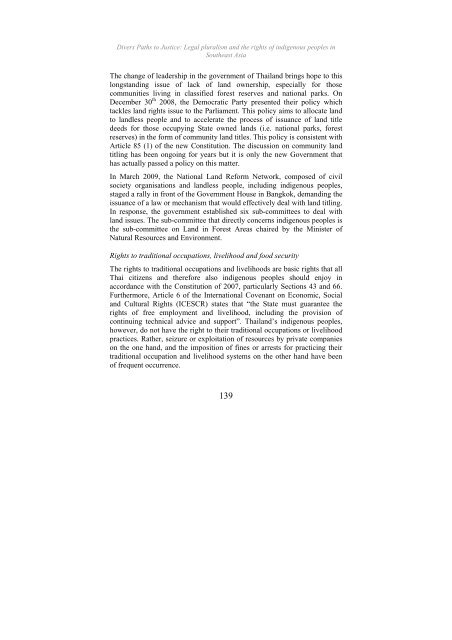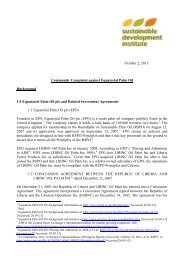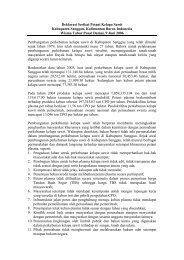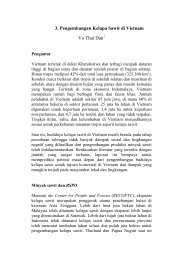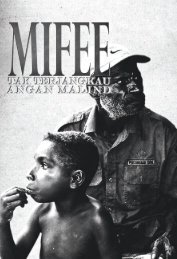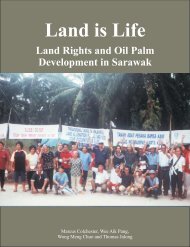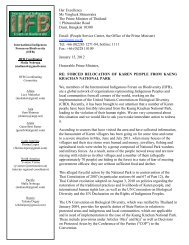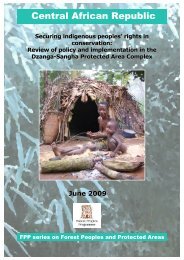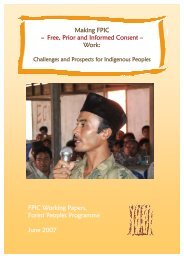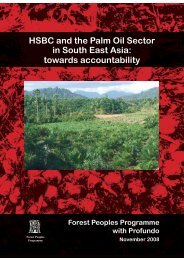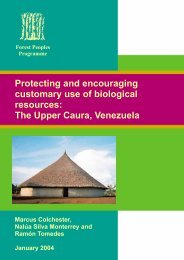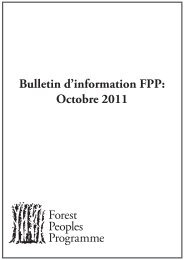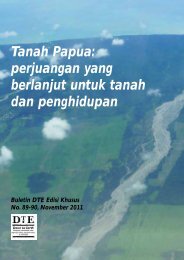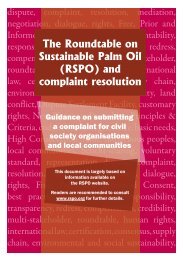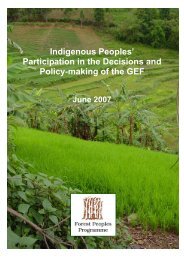Divers Paths to Justice - English - Forest Peoples Programme
Divers Paths to Justice - English - Forest Peoples Programme
Divers Paths to Justice - English - Forest Peoples Programme
Create successful ePaper yourself
Turn your PDF publications into a flip-book with our unique Google optimized e-Paper software.
<strong>Divers</strong> <strong>Paths</strong> <strong>to</strong> <strong>Justice</strong>: Legal pluralism and the rights of indigenous peoples inSoutheast AsiaThe change of leadership in the government of Thailand brings hope <strong>to</strong> thislongstanding issue of lack of land ownership, especially for thosecommunities living in classified forest reserves and national parks. OnDecember 30 th 2008, the Democratic Party presented their policy whichtackles land rights issue <strong>to</strong> the Parliament. This policy aims <strong>to</strong> allocate land<strong>to</strong> landless people and <strong>to</strong> accelerate the process of issuance of land titledeeds for those occupying State owned lands (i.e. national parks, forestreserves) in the form of community land titles. This policy is consistent withArticle 85 (1) of the new Constitution. The discussion on community landtitling has been ongoing for years but it is only the new Government thathas actually passed a policy on this matter.In March 2009, the National Land Reform Network, composed of civilsociety organisations and landless people, including indigenous peoples,staged a rally in front of the Government House in Bangkok, demanding theissuance of a law or mechanism that would effectively deal with land titling.In response, the government established six sub-committees <strong>to</strong> deal withland issues. The sub-committee that directly concerns indigenous peoples isthe sub-committee on Land in <strong>Forest</strong> Areas chaired by the Minister ofNatural Resources and Environment.Rights <strong>to</strong> traditional occupations, livelihood and food securityThe rights <strong>to</strong> traditional occupations and livelihoods are basic rights that allThai citizens and therefore also indigenous peoples should enjoy inaccordance with the Constitution of 2007, particularly Sections 43 and 66.Furthermore, Article 6 of the International Covenant on Economic, Socialand Cultural Rights (ICESCR) states that “the State must guarantee therights of free employment and livelihood, including the provision ofcontinuing technical advice and support”. Thailand’s indigenous peoples,however, do not have the right <strong>to</strong> their traditional occupations or livelihoodpractices. Rather, seizure or exploitation of resources by private companieson the one hand, and the imposition of fines or arrests for practicing theirtraditional occupation and livelihood systems on the other hand have beenof frequent occurrence.139


